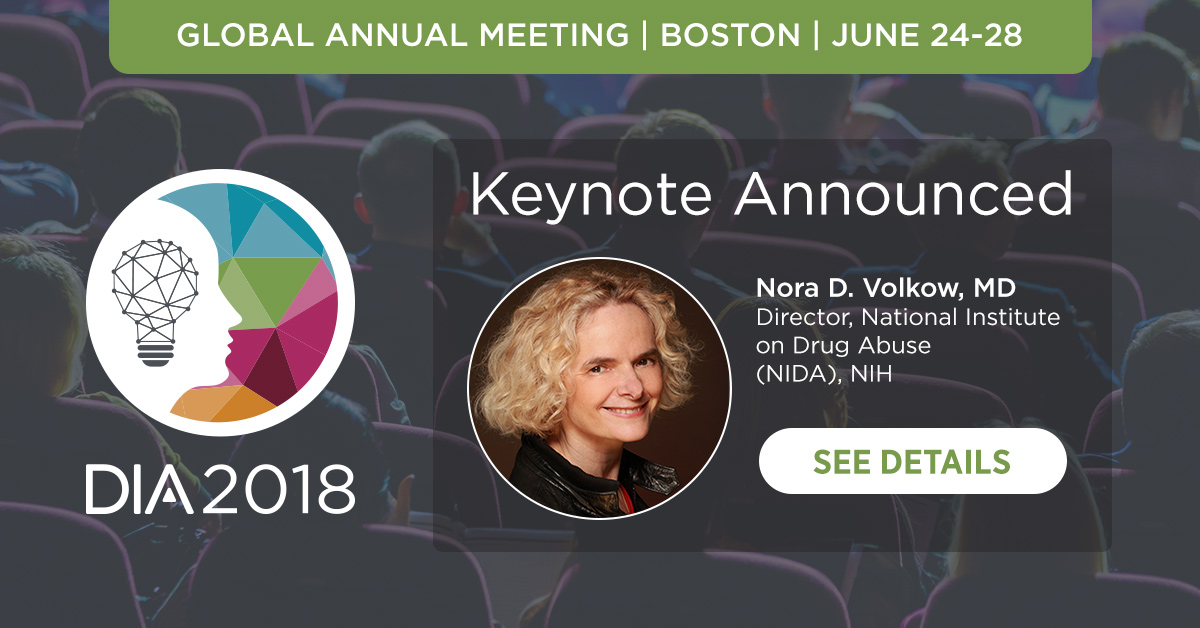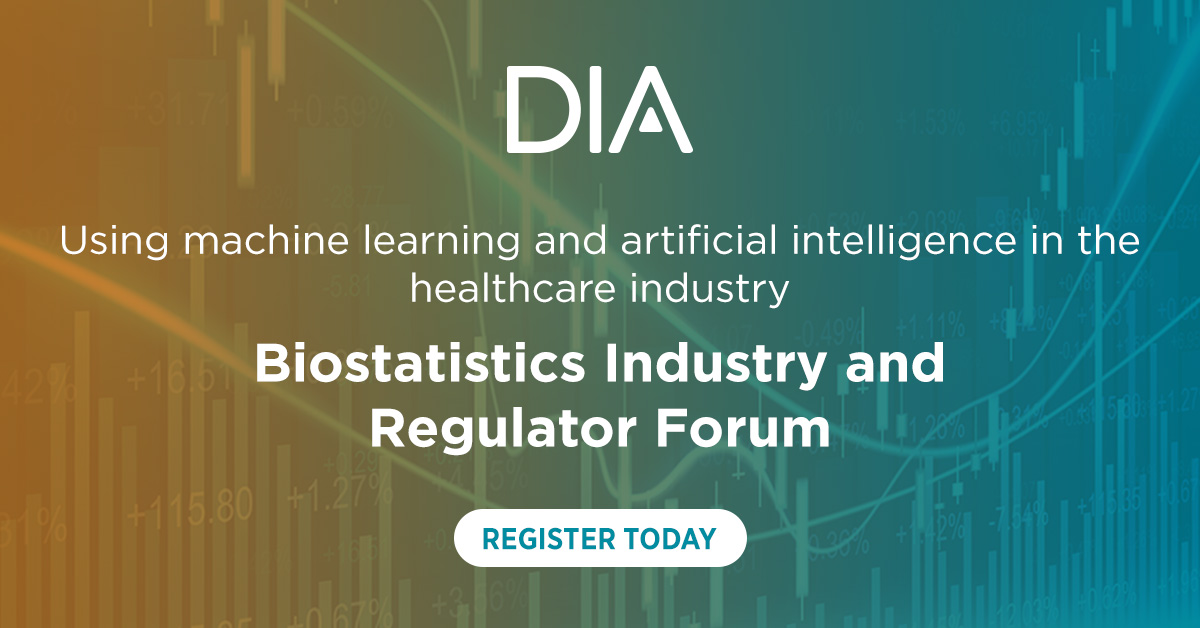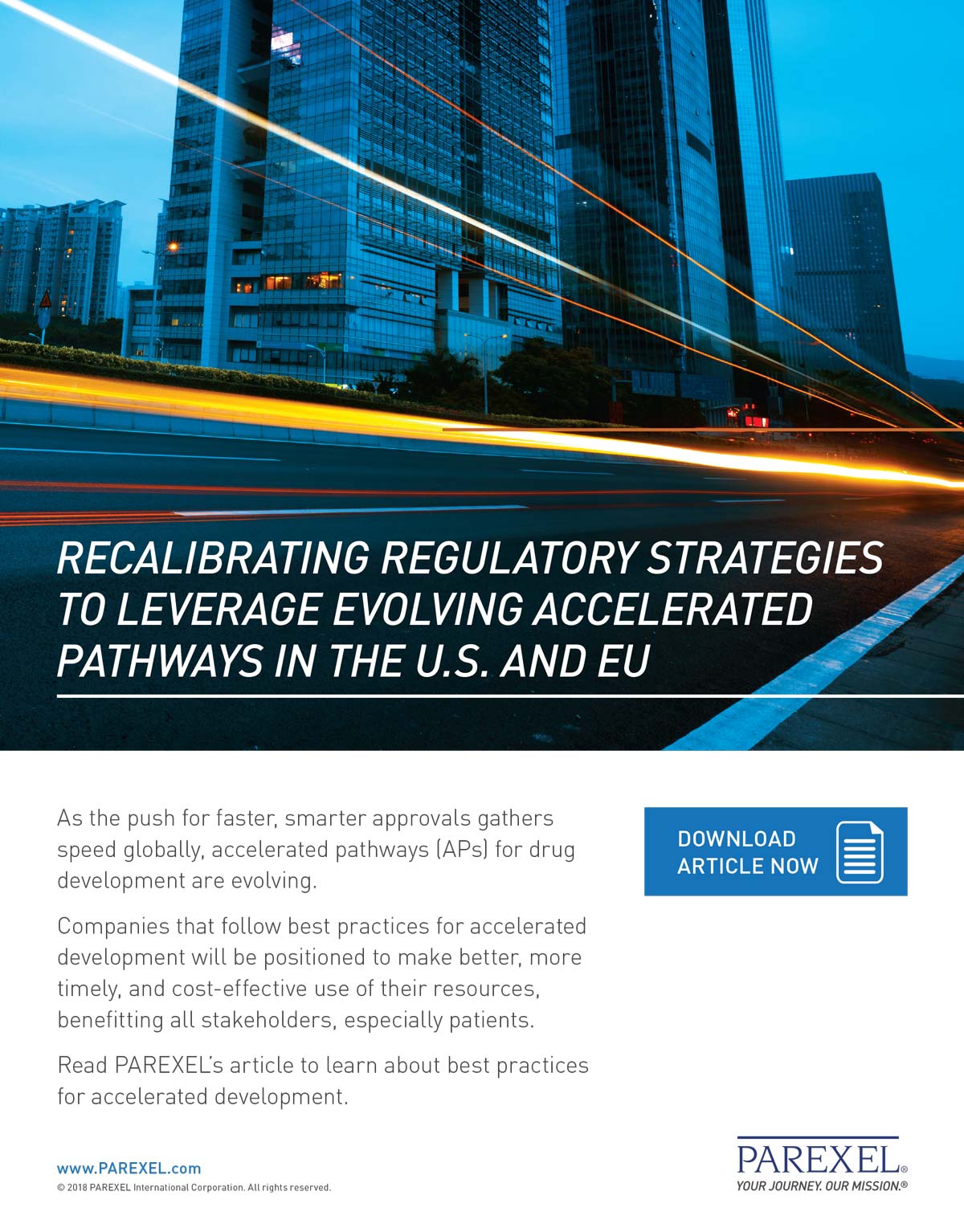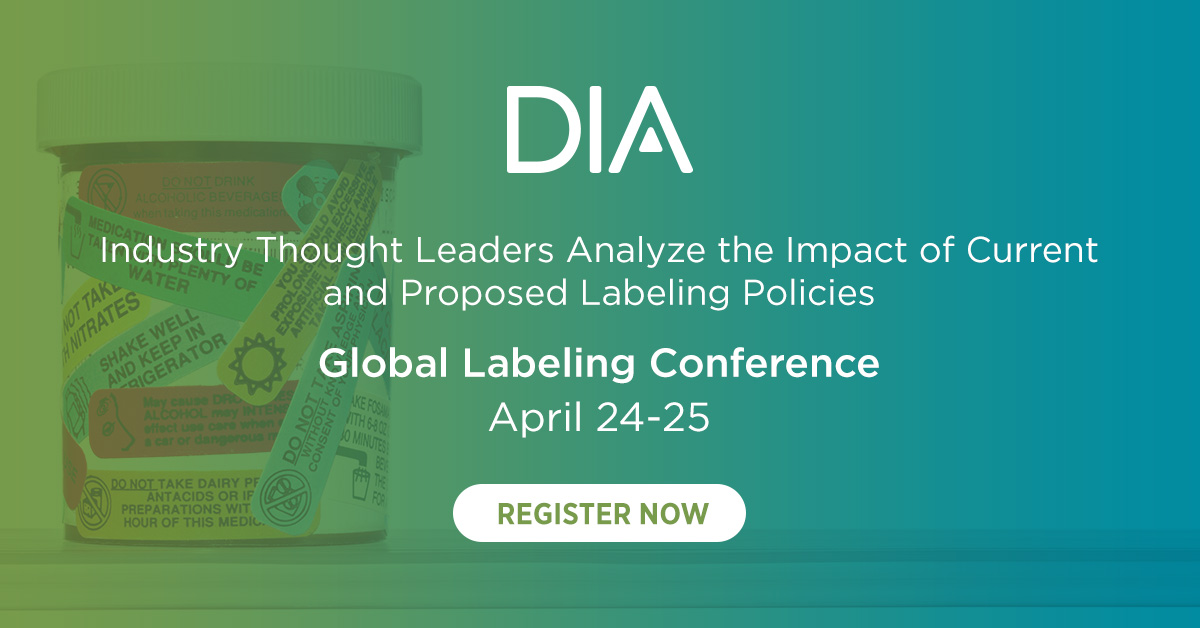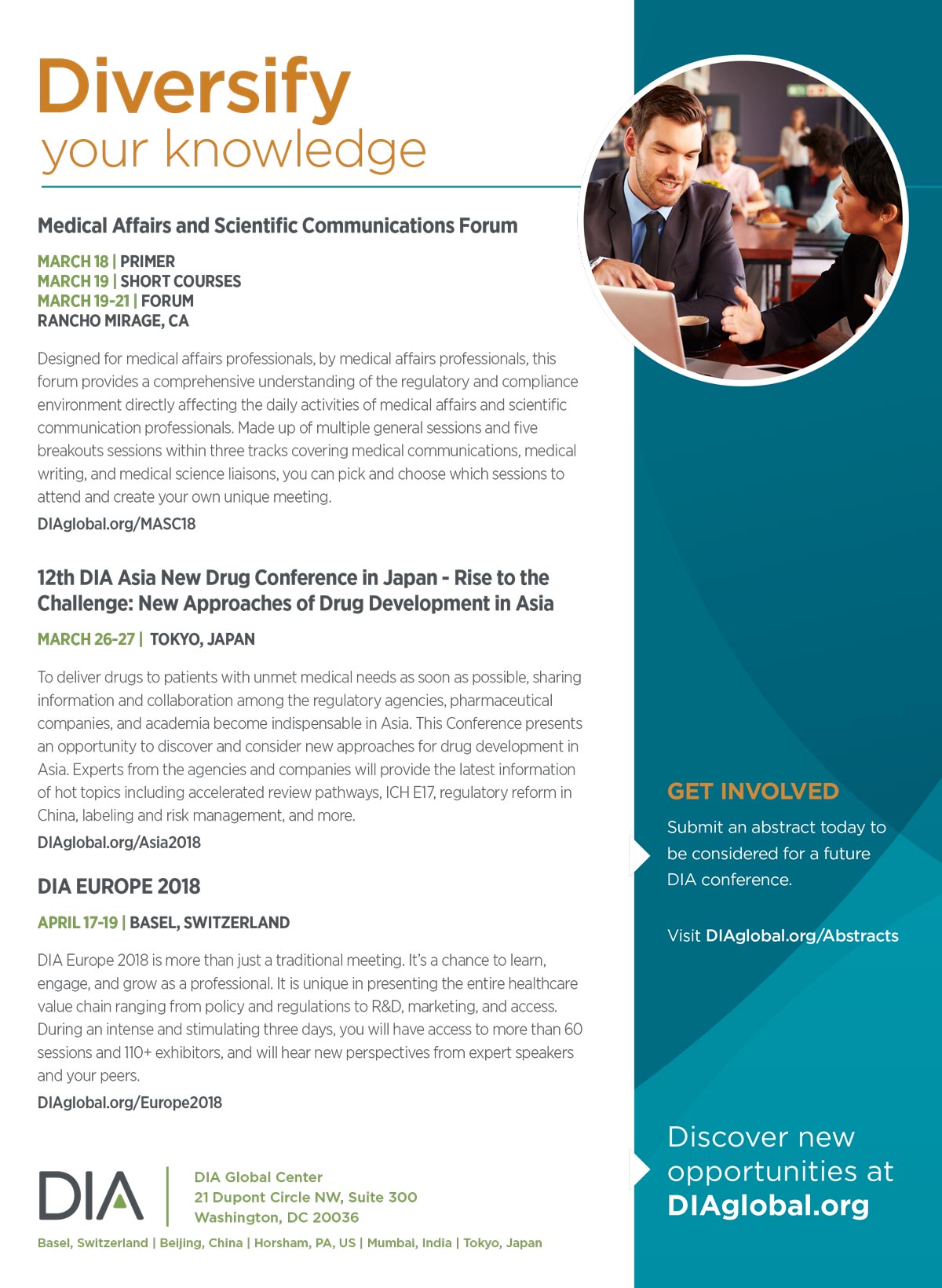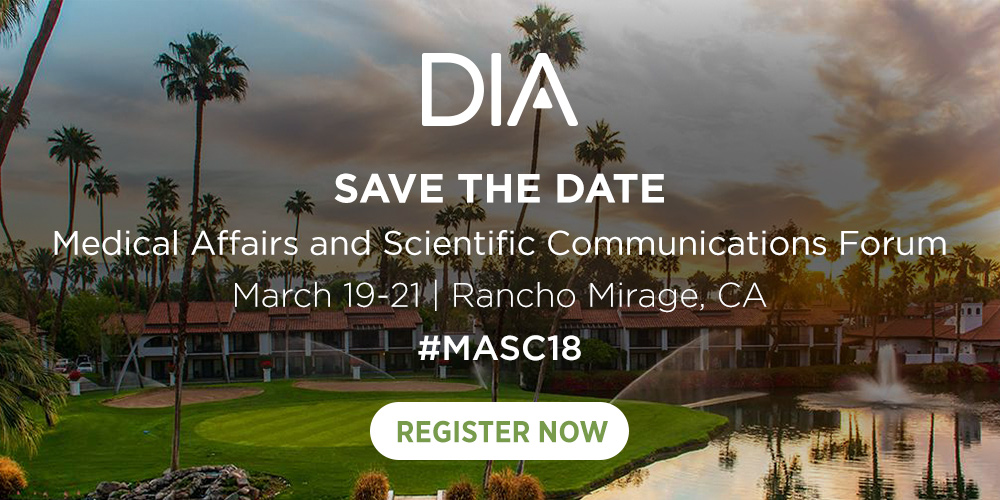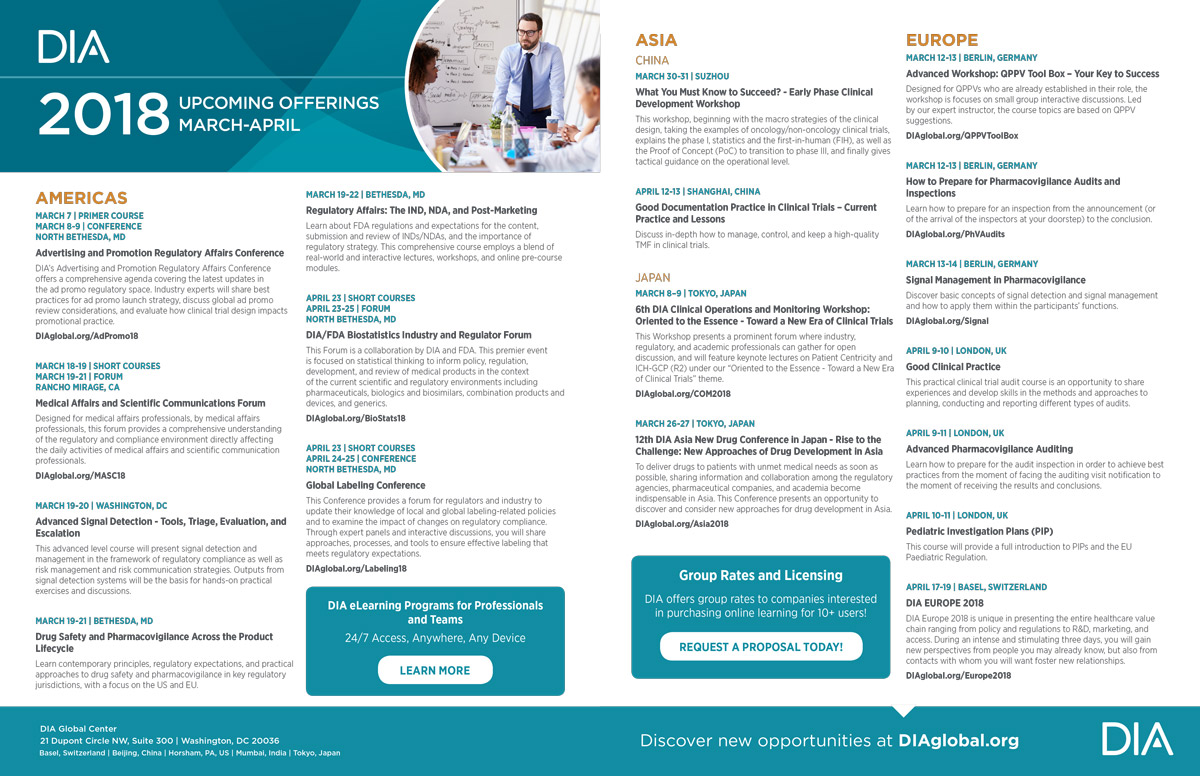March 2018 Global Forum
Table of Contents
The ACSS Consortium Work-Sharing Trial fosters collaboration among international regulatory authorities
Symposium highlights and analysis
A Novel Approach to Liquid Biopsy
Around the Globe
Key themes and takeaways
Brexit, EMA’s Move to Amsterdam, Clinical Trial Regulation Delay, Off-Label Uses
Shared Visions at the 14th DIA Japan Annual Meeting
White paper
Executive Leadership
Progress is Impossible
Harmonize, Converge, Rely: How Convenient!
Career Column
Creating Your Own Career Opportunities
Subscribe
Love Global Forum‘s new online format? Subscribe today and never miss an issue.
Executive Leadership | Global Chief Executive and Board Chair Message
To Our Readers
Progress is Impossible
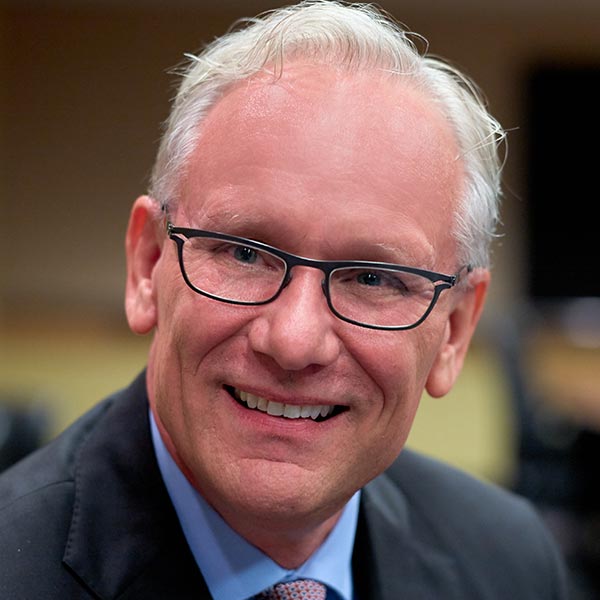
John A. Roberts
Chair, DIA Board of Directors

Barbara Lopez Kunz
Global Chief Executive, DIA
rogress is impossible without change,” wrote the great Irish dramatist George Bernard Shaw, “and those who cannot change their minds cannot change anything.”
The fundamental importance of changing the world around us to deliver better healthcare to all is quite evident as DIA embarks on a most eventful month.
In March, DIA will convene the 2018 What You Must Know to Succeed? – Early Phase Clinical Development Workshop in China and our 6th Pharmacovigilance Conference – Drug Safety Unplugged, in India. In Japan, DIA will present the 12th Asia New Drug Conference, the 6th Clinical Operations and Monitoring Workshop, and the 7th Annual DIA FDA IND/NDA Training Course; in North America, DIA will convene the annual Advertising and Promotion Regulatory Affairs Conference and Medical Affairs and Scientific Communications Forum. And, of course, preparations are in the final stages for DIA Europe 2018, our premier annual gathering in Europe, to be held April 17-19, in Basel.
Executive Leadership | Editor’s Message
To Our Readers
Harmonize, Converge, Rely: How Convenient!
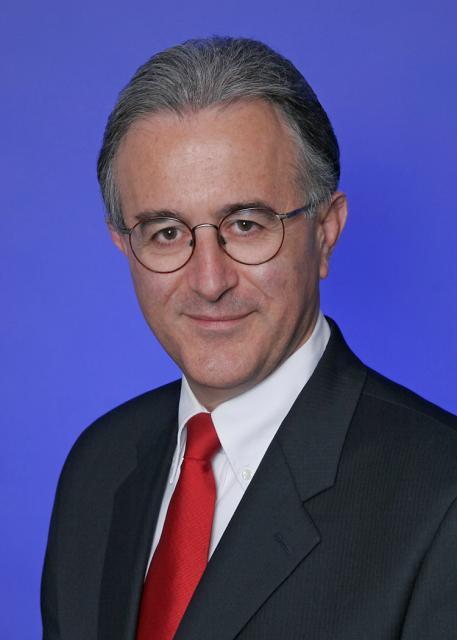
Alberto Grignolo
Editor
Fellow of DIA
wenty-eight years ago, the concept of “regulatory harmonization” entered our vocabulary and daily lives when ICH (the International Council for Harmonisation of Technical Requirements for Pharmaceuticals for Human Use) was launched to add efficiency and reduce duplication of effort in drug development.
To date, ICH has produced more than 50 harmonized and profoundly impactful Guidelines, and has engaged an increasing number of members – most recently Brazil, China, and South Korea – and official observers. It’s a success story.
Then came the concept of “regulatory convergence” to reflect the alignment (not the full harmonization) of regulatory requirements based on shared principles for achieving public health goals. Many countries and regions (including parts of Africa, ASEAN, and the Americas) have adhered to this notion and have applied it to varying degrees.
Editorial Board
Content stream editors
Translational science
Gary Kelloff US National Institutes of Health
David Parkinson ESSA Pharma, Inc.
regulatory science
Yoshiaki Uyama Pharmaceuticals and Medical Devices Agency (PMDA)
Adora Ndu BioMarin Pharmaceutical, Inc.
Patient engagement
Deborah Collyar Patient Advocates In Research (PAIR)
Lode Dewulf Corvalus and Doctors of the World
Value & access
Edith Frénoy European Federation of Pharmaceutical Industries and Associations (EFPIA)
Sean Tunis Center for Medical Technology Policy (CMTP)
Editorial Staff
Alberto Grignolo, Editor PAREXEL International
Ranjini Prithviraj, Senior Managing Editor, Associate Director DIA Publications
Sandra Blumenrath, Science Writer DIA Publications
Chris M. Slawecki, Senior Copywriter DIA Publications
Regional Editors
AFRICA
David Mukanga Bill and Melinda Gates Foundation
ASEAN
Silke Vogel Duke-National University of Singapore Graduate Medical School
AUSTRALIA/NEW ZEALAND
Richard Day University of New South Wales, Medicine, St Vincent’s Hospital
CANADA
Judith Glennie JL Glennie Consulting, Inc.
Megan Bettle Health Canada
CENTRAL AND SOUTH AMERICA
Jaime Oliveira Bayer S/A
CHINA
Ling Su Shenyang Pharmaceutical University, Lilly Asia Ventures
EUROPE
John Lisman Lisman Legal Life Sciences
INDIA
J. Vijay Venkatraman Oviya MedSafe
JAPAN
Junichi Nishino Novartis Pharma K.K.
US
Ann Meeker-O’Connell Johnson & Johnson Quality and Compliance
DIA Membership
Bringing together stakeholders for the betterment of global health care.
Sharing the Regulatory Workload
he ACSS Consortium is an international cooperation between medium-sized regulatory authorities that include the Therapeutic Goods Administration of Australia (TGA), Health Canada (HC), Singapore’s Health Sciences Authority (HSA), and the Swiss Agency for Therapeutic Products (Swissmedic).
The work sharing consortium was formed in 2007 to reduce duplication of efforts and ensure timely consumer access to safe and effective therapeutic products, addressing the increased workload, greater complexity of issues, and limited resources agencies face these days. Currently, the ACSS Consortium has a number of active working groups in place, focusing on new chemical entities, complementary health products, IT architecture, and generic medicines, to name just a few. Each working group is responsible for its own work plan under the governance of the Heads of Agencies.
Transforming Clinical Trials:
CTTI’s Ten-Year Anniversary
Ann Meeker-O’Connell
Global Forum
US Regional Editor
Pamela Tenaerts
CTTI Executive Director
Sandra Blumenrath
DIA Science Writer
n February 6th, representatives from across the healthcare industry came to Bethesda, Maryland, to attend the 10th Anniversary Symposium of the Clinical Trials Transformation Initiative (CTTI). Speakers and panelists from industry, patient organizations, academia, the US Food and Drug Administration (FDA), and others discussed examples of how CTTI practices have been successfully adopted, their broader impact on the regulatory environment, and the future of clinical trials. Here are some key takeaways:
- CTTI has overcome inefficiencies in the clinical trial system by bringing together key stakeholders to address critical issues impacting clinical development collaboratively.
- Incorporating CTTI’s Quality by Design (QbD) principles has allowed study teams to reduce the volume of data collected during study visits and to implement strategies to help patients complete electronic diaries that provided critical data for study evaluation.
- With its Patient Groups and Clinical Trial Project, CTTI has demonstrated that meaningful patient engagement can enrich research and drive improvements in clinical care. Part of CTTI’s ongoing work is to develop a tool to identify high-value engagement opportunities.
- CTTI’s Central Institutional Review Board (IRB) Recommendations have helped organizations implement a single IRB of Record by providing tools and templates that speed implementation while maintaining proper ethical oversight of a study. Template agreements to operationalize a single IRB are now among the wealth of tools available to researchers, sponsors, and IRBs.
![]() Podcasts
Podcasts

Rules for Successful Patient-Industry Engagement
Co-author Dr. Jeffrey Sherman, Chief Medical Officer / Executive Vice President at Horizon Pharmaceuticals, and DIA’s liaison to the Clinical Trials Transformation Initiative, reviews The Rules of Engagement: CTTI Recommendations for Successful Collaborations Between Sponsors and Patient Groups Around Clinical Trials with Ron Bartek, Co-Founder and President of the Friedreich’s Ataxia Research Alliance.
Cancer Biomarkers in Exosomes
A Novel, Sensitive, and Specific Approach to Liquid Biopsy

his month’s Translational Research discussion features exosomes and their important role as a valuable tool to obtain the ever-increasing data establishing the value/utility of liquid biopsies.
This article clearly summarizes the history of progress in this space and the important complementary, sometimes unique, role that exosomes will play with the other tools measuring substrates, such as Circulating Tumor Cells (CTCs) and Circulating Tumor DNA (ctDNA), as biomarkers obtained non-invasively for cancer diagnoses, therapy development, and monitoring. The distinction between micro-RNA (miRNA) and long RNA is discussed, as is the first commercial exosome-based urine test to rule out the presence of a significant number of high grade prostate cancers.
![]() Podcasts
Podcasts

Breakthrough for Patients and Regulatory Science
Dr. Ellen V. Sigal, Chairperson and Founder of Friends of Cancer Research, discusses the advocacy organization’s role in the Breakthrough Therapy designation. Dr. Sigal is also Chair of the Board of Directors of the Reagan-Udall Foundation, serves on the Board of the Foundation for the National Institutes of Health, and serves on the Cancer Moonshot Blue Ribbon Panel established by Vice President Joe Biden.
![]() Podcasts
Podcasts
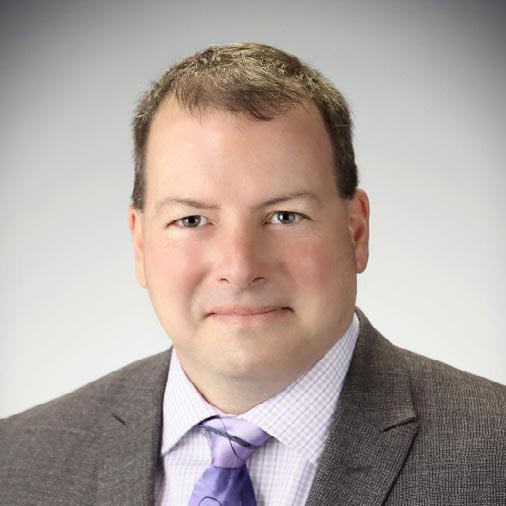
Multiple Pathways Complicate Opioid Pain Management
The World Health Organization recently estimated that, worldwide, more than 15 million people suffer from opioid dependence and roughly 69,000 people die from opioid overdoses each year. Professor Edward Bilsky, an expert in opioid pharmacology and early-stage drug development who serves as the Provost and Chief Academic Officer at Pacific Northwest University of Health Sciences, discusses the importance of patient engagement in opioid pain management.
![]() Podcasts
Podcasts
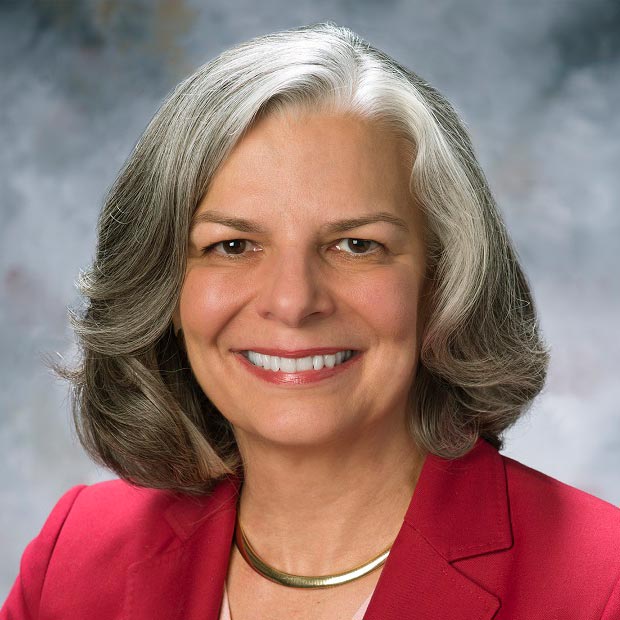
DIA 2018 Co-Chair: Patient Activists Are “Our Best Friends”
Dr. Julie Gerberding (Chief Patient Officer and Executive Vice President for Policy, Communications, and Population Health, Merck) discusses the evolution of patient engagement and her service as former Director for the US Centers for Disease Control and Prevention, as an executive sponsor of the Merck Women’s Network, and as honorary co-chair for DIA Global 2018 in Boston.
White Paper
Recalibrating Regulatory Strategies to Leverage Evolving Accelerated Pathways in the US and EU
Around The Globe
Pandemic Preparedness: Accelerating Access to Health Products When the Global Threat Strikes
Conversations at the Inaugural DIA-CoRE Singapore Conference
Silke Vogel
Global Forum
ASEAN Regional Editor
Hozanna Ngoh
Centre of Regulatory Excellence,
Duke-NUS Medical School, Singapore
his year marks a century since the deadly Spanish flu epidemic in 1918, which led to the deaths of an estimated 50 million people. Today, we remain vulnerable to the ever-present threat of pandemics arising from emerging and re-emerging infectious diseases.
Aiming to provide a platform for discussions on pandemic preparedness in Asia, the Duke-NUS Centre of Regulatory Excellence (CoRE) and DIA worked together to bring the first joint DIA-CoRE conference to Singapore and the wider South-East Asia region. This inaugural event, Accelerating Access to Innovative Products – Improving Responses to Pandemic Diseases, held in January 2018, focused on approaches to expedite research and development of health products (including vaccines and diagnostics), and ensure timely patient access to such products during pandemic situations. The panel of speakers featured public health and healthcare leaders, infectious disease experts, regulators, and industry players, which enabled multi-stakeholder dialogue and networking.
![]() Podcasts
Podcasts

Time and Place for Innovation in a Pandemic Outbreak?
Dr. Dorothee Grimald, Director of Global Regulatory Policy for MSD International in Singapore, and Chair for Accelerating Access to Innovative Products: Improving Responses to Pandemic Diseases, discusses ways to expedite patient access to combative therapies.
Around The Globe
What’s New in Europe?
Brexit, EMA’s Move to Amsterdam, Clinical Trial Regulation Delay, Off-Label Uses
John Lisman
Global Forum
Europe Regional Editor
2017 ended with some important decisions in respect of Brexit. First, the UK finally managed to reach agreement about the conditions for leaving the EU. This agreement is merely about payments the UK must still make as a consequence of earlier commitments. The next step towards Brexit is to negotiate the future relationship between UK and EU. Second, Amsterdam in the Netherlands was chosen as the future seat of the European Medicines Agency (EMA). Next, perhaps as a consequence of EMA’s preparations for Brexit, new delays in the development of the clinical trial platform have pushed back the coming into actual use of the new Clinical trial Regulation (CTR). In addition, more and more attention is directed at off-label use of medicinal products and it consequences on public health.
Painful Divorce: Future UK – EU Trade Agreements
very divorce is painful. This might be even truer for breaking up the UK-EU bond.
Voters were told in the Brexit campaign that leaving the EU would lead to a better life, because the disadvantages of membership would disappear while not touching the benefits. However, the remaining member states will not allow the Britons to eat their cake and have it, too. This means that clear choices must be made about trade relations between an independent UK and the EU. The benefits of an open internal market, however, come alongside the disadvantages of EU membership which the majority of referendum voters wanted to get rid of.
Around The Globe
A Nobel Scientist and a Top Regulator Talk Translational Science
Shared Visions at 14th DIA Japan Annual Meeting
Junko Sato, PMDA
Program Advisor, DIA Japan Annual Meeting
Junichi Nishino
Global Forum Japan Regional Editor
or all of its distinguished track record in scientific research and world-class discoveries, Japan faces significant challenges in consistently translating those discoveries into therapeutic applications for patients.
In Europe and America, the development of venture capitalism and the formation and smooth operation of consortia provide the groundwork for robust and sustained cooperation between academia and industry in cutting-edge medical research. This situation is somewhat different in Japan: It can be considerably more difficult to attract capital for basic research, available funding tends to be lower than in Europe and America, and most funding capital is in the form of short-term, two- to three-year grants from public agencies. These factors make it difficult to cultivate venture development in Japan, and contribute to the complications of sustaining long-term basic research at single laboratories. In January 2018, the Japan Council for Science, Technology and Innovation announced that, in response, the Abe government increased its 2018 investment in science and technology to 3.84 trillion yen ($35B US), toward its goal of investing 1% of Japan’s gross domestic product by 2020 (up from 0.65% in 2015).
![]() Podcasts
Podcasts

Can Europe Optimize Healthcare Quality AND Pricing?
Processes to better determine a medicine’s value are discussed by Dr. Indranil Bagchi, Vice President, Value and Access, Novartis Oncology, and Dr. Thomas Szucs, Professor of Pharmaceutical Medicine and Director of the European Center of Pharmaceutical Medicine at the University of Basel, who will help lead discussions on value and access at DIA Europe 2018.
![]() Podcasts
Podcasts

Need for Value Creates Opportunity for Patients
Today’s patients can get involved at either end of the “bench to bedside” cycle, explain Christopher McCabe, Executive Director and CEO, Institute of Health Economics (Canada), and Dimitrios Athanasiou, board member of United Parent Projects Muscular Dystrophy and patient representative to EURORDIS, who will also help guide patient engagement discussions at DIA Europe 2018.
Career Column
What’s Luck Got to do With It?
Creating Your Own Career Opportunities

he other day, a friend asked how things had been going. I told him I was really happy with my current work situation and felt extremely lucky with how things have worked out. He said, “I don’t think you’re lucky, I think you’ve earned it.”
The conversation stuck with me and got me thinking, am I lucky or did I earn this? When I think about how things in my life have unfolded, there was some hard work, grit, and timely help from others, but there was also some “right place at the right time” sprinkled in. I believe you need to be a little lucky and share these tips that helped me discover my own luck in life.
Listen & Learn
Have You Heard? DIA Podcasts
DIA podcasts offer listeners a unique opportunity to hear from leaders in healthcare product development, regulation, and patient advocacy. Subscribe to our Driving Ideas to Action iTunes podcast channel to stay connected!


Thanks for reading our March 2018 Issue!



